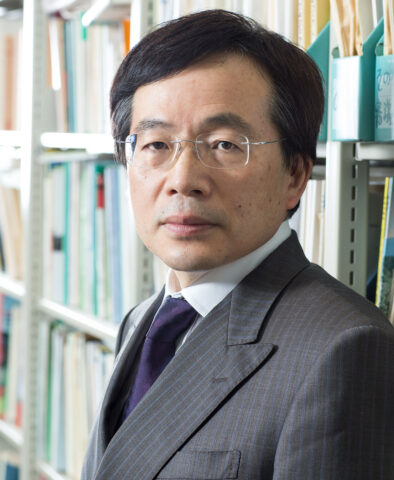Nobuhiro SUZUKI, Professor
・Standing Faculty, International Program in Agricultural Development Studies (IPADS)
International Environmental Solutions Study
Laboratory of International Environmental Economics,
Department of Global Agricultural Sciences, Graduate School of Agricultural and Life Sciences, the University of Tokyo

Contact information:
Phone +81 3 5841 7533
>>EMAIL asuzukiz[at]g.ecc.u-tokyo.ac.jp
Professional Experience & Education
| 2006: | Cooperation Member, Science Council of Japan |
|---|---|
| Sept. 2006: | Professor, Department of Global Agricultural Sciences, the University of Tokyo |
| 2005: | Professor, Kyushu University Asian Center |
| 2004: | Professor, Graduate School of Agriculture, Kyushu University |
| 1998-2005: | Visiting Assistant Professor, Cornell University |
| 1998: | Assistant Professor, Faculty of Agriculture, Kyushu University |
| 1996: | Section Chief, Research and Development Cooperation Division, National Research Institute of Agricultural Economics |
| 1982: | Ministry of Agriculture, Forestry and Fisheries of Japan |
| 1982: | B.S., Agricultural Economics Department, Faculty of Agriculture, the University of Tokyo |
Discipline(s)
Economics, Agricultural Economics
Research interests
We have worked to create a new type of simultaneous equation model system that introduces the parameters for the extent of the imperfect competitiveness in agricultural markets that had been dealt with in the past as perfect competitive markets, apply those research results to the analysis of international trade models, and elucidate both the effect on national economies and environments of liberalized agricultural trade of the World Trade Organization’s agricultural negotiations and the increasingly active negotiations to conclude free trade agreements and their impact on domestic policy and international trade. We have also worked to elucidate the effect not only on Japan, but on various levels throughout the world, including the countries that are party to and not party to free trade agreements, and the measures for adjusting those effects.
For Japan to maintain its pace of development with that of Asia, it must consider the equitable distribution of wealth in addition to a narrow economic efficiency. It must seek to ameliorate the poverty in Asian agricultural villages and strengthen economic ties that contribute to the amelioration of income differentials of as much as 100 times in Asian countries.
Further, this must be connected to the coexistence of diverse agricultural, forestry, and fishing industries that incorporate considerations of ecological and environmental protection. We want to present a framework enabling debate in concrete terms of systems that enable this difficult adjustment.
Study example
The potential for creating a new common East Asian agricultural policy – Self-sufficiency rate / Customs rate / Fiscal burden / Environmental burden – WTO and FTA trends and agriculture – The prospects for a new composition
Primary Books
- The Mission of Farming: Transcending the WTO, National Chamber of Agriculture, 2006
- New Empirical Industrial Organization and Food System, May 2006, Peter Lang Publishing, Inc., 2006 (Joint editor)
- The Reliance of Foreign Countries for Food, the Environmental Burden, and Sustainable Agriculture, Tsukuba Shobo, 2005
- Free Trade Agreements and Food: The logic of evaluation and an analytic framework, Tsukuba Shobo, 2005 (Editor)
- Free Trade Agreements and Japanese Food and Agriculture, Tsukuba Shobo, 2004
- The WTO and American Agriculture, Tsukuba Shobo, 2003
- A Quantitative Approach to Oligopolistic Food Systems, Association of Agricultural and Forestry Statistics, 2002
- A Verification Analysis of Imperfect Competition in the Raw Milk Market, Association of Agricultural and Forestry Statistics, 1994
Publication
-The Mission of Farming: Transcending the WTO, National Chamber of Agriculture, 2006
-New Empirical Industrial Organization and Food System, May 2006, Peter Lang Publishing, Inc., 2006 (Joint editor)
-The Reliance of Foreign Countries for Food, the Environmental Burden, and Sustainable Agriculture, Tsukuba Shobo, 2005
-Free Trade Agreements and Food: The logic of evaluation and an analytic framework, Tsukuba Shobo, 2005 (Editor)
-Free Trade Agreements and Japanese Food and Agriculture, Tsukuba Shobo, 2004
-The WTO and American Agriculture, Tsukuba Shobo, 2003
-A Quantitative Approach to Oligopolistic Food Systems, Association of Agricultural and Forestry Statistics, 2002
-A Verification Analysis of Imperfect Competition in the Raw Milk Market, Association of Agricultural and Forestry Statistics, 1994